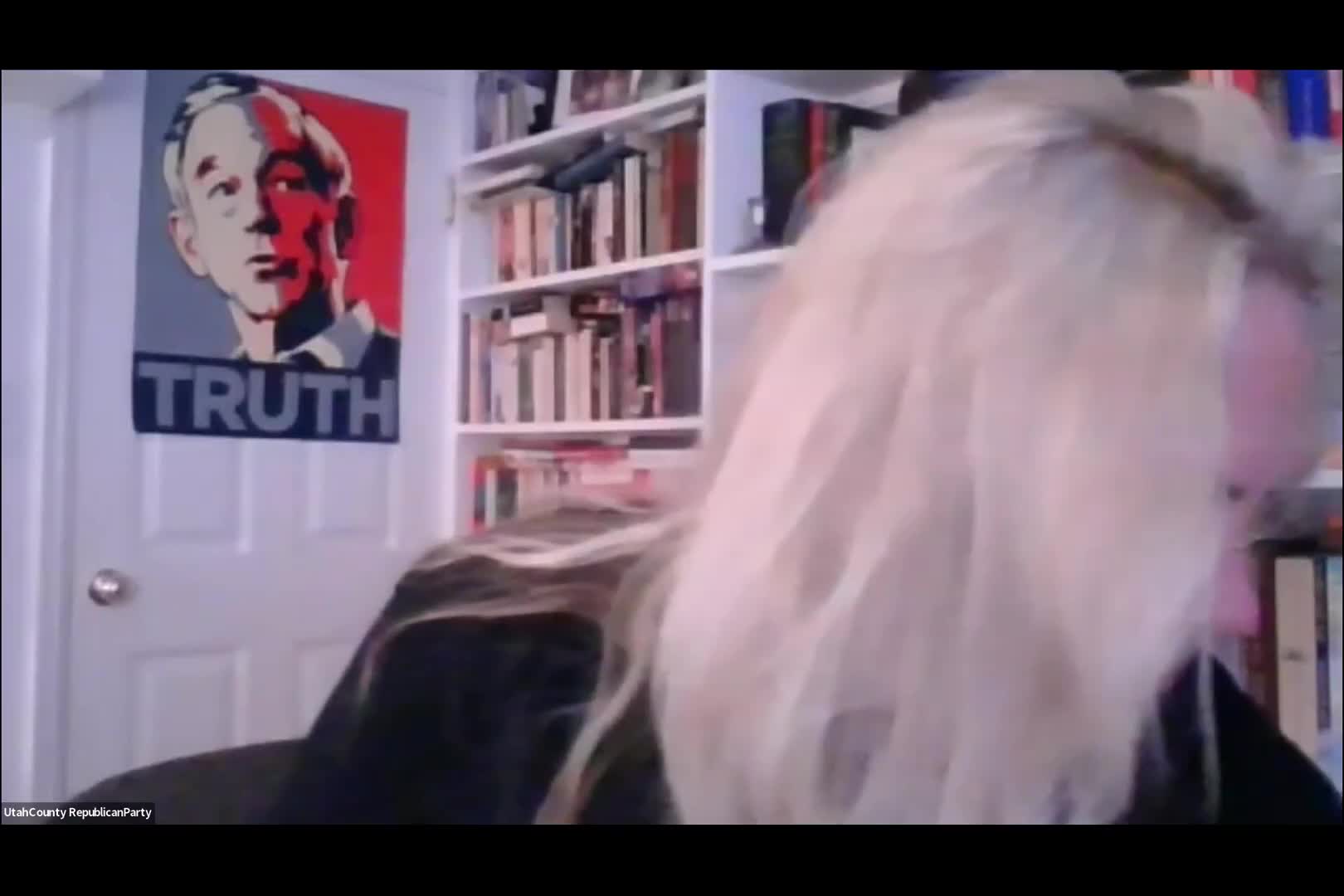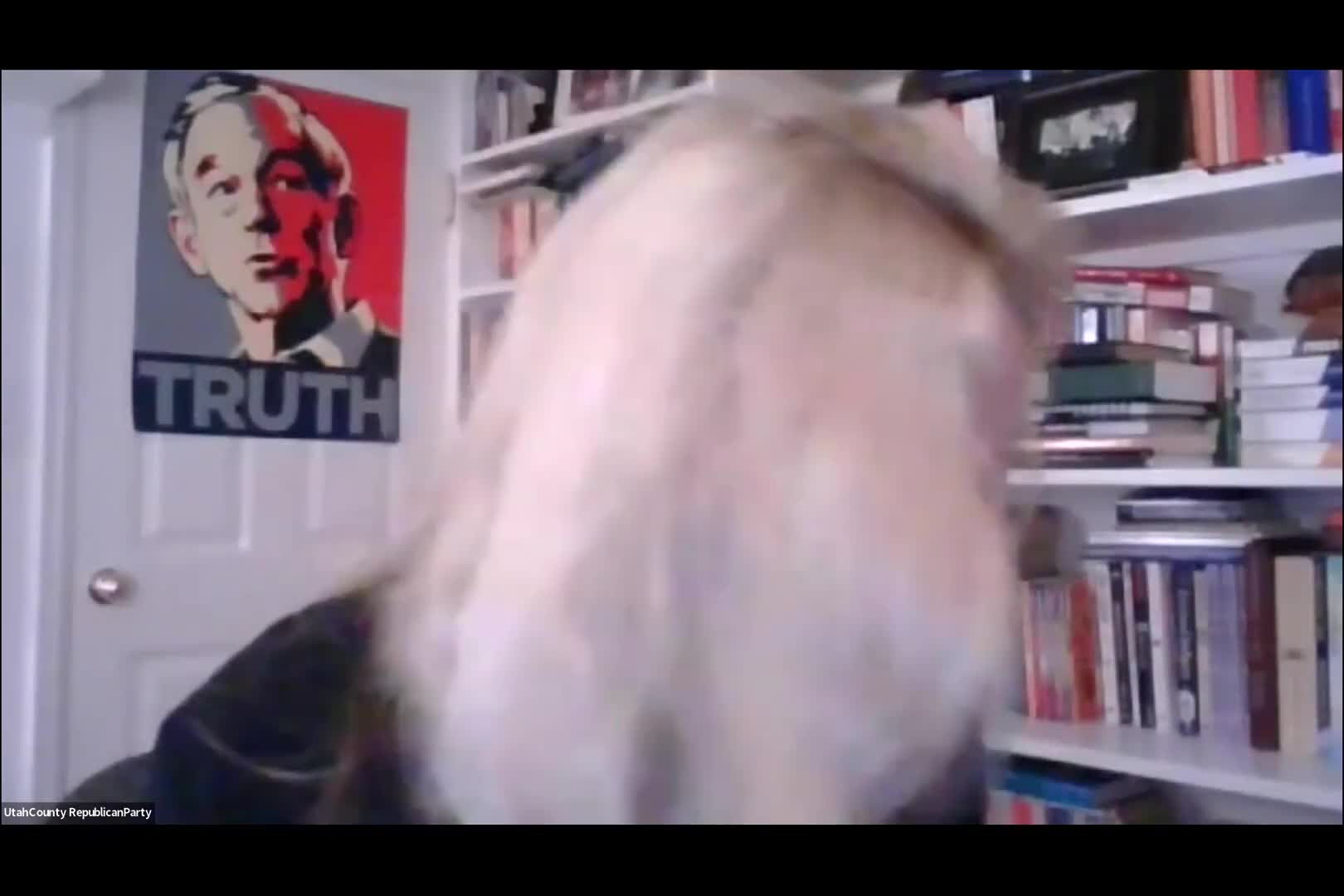Article not found
This article is no longer available. But don't worry—we've gathered other articles that discuss the same topic.

Utah County GOP reviews slate of constitutional amendments before state convention

Proposals to lower SCC quorum and to limit elected-official presence prompt debate on representation and practicality

Debate over precinct definitions and delegate allocation centers on fairness and local control

Delegates hear proposed platform planks on adoption and on defending the caucus‑convention system

Utah County GOP member proposes resolution urging CPI-based alignment of property assessments with purchase price

